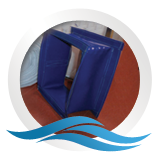Understanding these methods is essential for effective financial planning and operational success in the construction industry. In summary, financial reporting and analysis are critical for construction companies to understand their financial position and make informed decisions. By creating accurate financial statements, managing cash flow effectively, and budgeting and forecasting, construction companies can achieve financial success and grow their business. By understanding these construction accounting basics and implementing best practices, you can better manage your construction business’s finances, ensure compliance, and drive profitability. Remember, effective construction accounting is not just about number-crunching and financial statements–it’s a powerful tool for informed decision-making and business growth. Retainage is a common practice in the construction industry where a percentage of the contract amount is withheld until the project is completed.
Construction accounting FAQs
Think of it as the invisible but critical foundation supporting your construction business. Just like a sturdy base ensures structural integrity, proper bookkeeping underpins your financial construction bookkeeping health, empowers informed decisions, and ultimately lays the path for a robust and profitable future. While mastering job costing might help you track project expenses, navigating the labyrinthine world of construction taxes can feel like building a tower with blindfolds. This section will equip you with essential tax tips to optimize your financial strategy and solidify your foundation.
Length of contract
It defines the different accounting codes for income, expenses, assets, and liabilities. Set it up by listing customer, vendor, project codes, and general expense categories. It involves allocating costs of materials, labour, equipment, and other direct expenses uniquely to every project as they progress. This may take planning to link costs to billing milestones or phases of work completed. Managing cash flow is critical since payments are often tied to project phases. Regularly comparing cash inflows with expenses prevents financial issues during long project timelines.
Automated receipt management
- Every month, take a moment to set aside 20-30% of your net income in a separate bank account.
- Never shy away from seeking help from those who are masters at their craft.
- However, with the right knowledge, systems, and tools, it’s manageable for businesses of all sizes.
- To ensure your electronic documents are safe, you may consider using a reliable cloud-based storage platform that provides encryption and access control features.
- The cash flow statement shows the inflows and outflows of cash during a specific period.
- To optimize the construction process and improve the efficiency of your projects, it is highly recommended to consider using cloud-based solutions specifically designed for the construction industry.
The best way to stay organized https://www.bignewsnetwork.com/news/274923587/how-to-use-construction-bookkeeping-practices-to-achieve-business-growth is tracking your day-to-day transactions, reconcile your accounts on a regular basis, and use construction accounting software. While it’s possible to manage your construction accounting on your own, owning a construction company comes with many complexities that may lead to you making costly accounting errors. Your company may manage short- and long-term contracts, often with varying end dates.
The balance sheet shows the company’s assets, liabilities, and equity at a specific point in time. The income statement shows the company’s revenue and expenses over a period of time, and the cash flow statement shows the inflows and outflows of cash during that period. Inventory management is crucial for construction companies to prevent overstocking or running out of materials. Implement a system for tracking inventory levels and reordering supplies as needed. Also account for equipment depreciation and maintenance costs to ensure accurate financial reporting.
- In addition, tracking each project’s profitability can be tricky, particularly compared to other industries where expenses and revenues are lumped together in a single financial statement.
- One way to solve this problem is to use accounting software like QuickBooks Online because it automates the bookkeeping process.
- This allows them to focus on more strategic tasks such as financial analysis and planning.
- It’ll also give you a good idea of what you’ll be making per project, which can free up cash flow and allow you to leverage the cash in new projects, new rentals, etc.
- Failing to comply with these requirements can result in audits and penalties.
You can go to a bank or credit union to set up a company checking account that suits the needs of your firm. One of the most significant challenges in construction is dealing with fluctuating material and labor costs. Market conditions, supply chain disruptions, and seasonal variations can cause unexpected cost increases, making it difficult to stick to budgets.
- Another benefit of automating your construction accounting is paying quarterly taxes to minimize tax burden during tax time.
- The ratios can help you identify areas that need improvement, such as reducing costs or increasing revenue.
- If you need help getting started or have outgrown handling your construction company’s books on your own, schedule a call with Slate.
- In many cases, you need to have your financial records for at least three to seven years (varying by state and type of record) so losing them would cause a lot of problems.
- You’ll also want to categorize these expenses by service, and by individual job so you can easily track how much money came in as well as how much you spent on expenses.
- You need to look at both of these pieces of financial data to get the true picture of what you’re dealing with.
Analyze Your Financial Statements
By creating separate accounts for each project, bookkeepers can track project-specific expenses and budgets with greater accuracy. By automating receipt management and expense tracking, Shoeboxed saves construction bookkeepers significant time. This allows them to focus on more strategic tasks such as financial analysis and planning. Construction projects often generate large receipts for various expenses like materials, labor, and equipment. Bridgit Bench is the #1 workforce planning software built for the construction industry. Our mission is simple — help contractors streamline operations and navigate workforce planning complexities.


